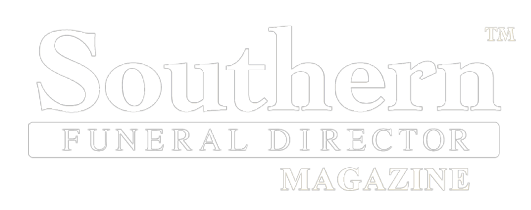(404) 312-6640
Tough Decisions to Make When Managing Your Business
Merriam-Webster’s Dictionary defines Management as “the act or skill of controlling and making decisions about a business.” It even goes further to include a reference to management as an art. As someone involved in the management of a funeral business, you are probably very familiar with the art that is making a business run.
Regardless of how you came to own, manage and operate your own funeral home or homes, there was a moment you realized, “I’m in charge. This business sinks or swims under my command.” The eternal question then became, how do you get that funeral business to not only swim, but succeed. You have a passion and a skill set to service your families with their end-of-life needs. You excel at this, and want to improve, but in doing that, you may have found that there are many other areas of your business that need to be managed and aren’t in your wheelhouse. You are faced with problems on a daily basis such as choosing the right personnel, getting the right advertising and marketing, and motivating the people you have to do the work that needs to be done.
At some point, you may realize that, as your business grows, or even just to get your business to grow, you have to delegate tasks to someone else. Of course, you can attempt to do it all, but you should ask yourself whether that’s really the most effective way to run things. Many people shy away from the broad term “outsourcing”, but maybe it’s something you want to consider. What are the benefits? The drawbacks? How do you decide what you should and should not outsource. In this article, we will give you the baseline answers to some of these questions to help you get started on an approach to potentially hiring an outsourced partner for different areas of your business.
Benefits
1) Creation of a solid succession plan
You may be running a family business and you may not. All too often it seems that the current owners and managers of a funeral business are so intimately familiar with and intertwined in the day-to-day running of the business, that when it comes time to create a plan for someone else to take over, concerns arise. Will the next generation or next managers be able to execute in the same way? How long will it take to pass this knowledge along? Utilizing another company for certain parts of your business will eliminate that need to transfer. When you hire someone who does that business day in and day out, they take on the burden of training when someone leaves, maintaining the right systems, and keeping up with compliance and changes. Some areas where people frequently (and often must) use another provider could be taxes, legal, record keeping, trust, and human resources, to name a few.
2) Time
It takes time to do many things correctly, and time is not a commodity that a funeral director and small business owner/manager has to waste. As we all know too well, when you are pressed for time to get things done, you tend to focus on two things: the things you care about the most, and the things that are “on fire”. If keeping your preneed records is not something you find exciting, and the auditors aren’t knocking down your door, you might be inclined to set that aside for another day. There are always many items like this, and eventually they add up. The problem is then they become so overwhelming it’s hard to know where to start. Hiring someone else to manage those things for you gives you the peace of mind to know that they are getting done, and gives you the time to focus on your families and serving them, which is what you do best.
3) Accuracy
Hiring an expert to complete a task can mean that the end product becomes more accurate than if it were done by someone who is not an expert in that area. If you hire a good investment advisor to develop and oversee your investment portfolio, they will be able to manage your risk and provide broad diversification while still watching the market. The end result is you are alleviated of the necessity of trying to watch the performance, and ultimately gain a better product.
Drawbacks
1) Loss of control.
Any time you hire someone outside of your business or outsource a piece to another company, you have lost some amount of control. The new company takes that on as their responsibility, and you must trust that they will effectively deliver the product they promised with your best interests in mind. This can be a scary prospect, particularly as you may be dealing with companies with whom you aren’t familiar. You can deal with this by maintaining a structure of oversight, meeting with your outside providers regularly, and having a good process for vetting companies before you work with them.
2) Vetting process
Sometimes, simply having the time to vet potential companies to whom to outsource pieces of your business can seem cumbersome and difficult. You may have an idea of a few players in a particular area of expertise, but knowing exactly what questions to ask and knowing whether you are getting the best is hard to determine ahead of time. You can start by asking others for referrals as to companies they have worked with and liked or ones that have not liked, and why. This is a good place to start, and you hope you’ve gotten good referrals, but even a good referral doesn’t guarantee that you will be getting the service your firm needs to receive. When you are already so pressed for time, undergoing a due diligence process to choose an outsourced can be more than you can commit.
Ultimately, how to effectively run a small business is a matter of choice and chance. You may find some great people with a broad range of skills and be able to leverage them while you grow. At some point, however, if you are successful at what you do, you will need to consider other options. There may come a time when you need to consider whether outsourcing or hiring an outside company to take pieces of your business over is the right solution for you. It’s important to consider all the factors, but the most important consideration to keep in mind is: how will you demonstrate to the families that you serve that you can and will provide them with the best possible solution?
Beth Kmiec joined ClearPoint Federal Bank & Trust (“ClearPoint”) in 2013, coming from personal trust at JPMorgan in Chicago, IL. Beth is currently the Executive Vice President, Trust Administration for ClearPoint. She is responsible for trust administration, client relations, as well as certain aspects of trust and legal compliance






Comments